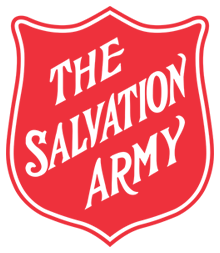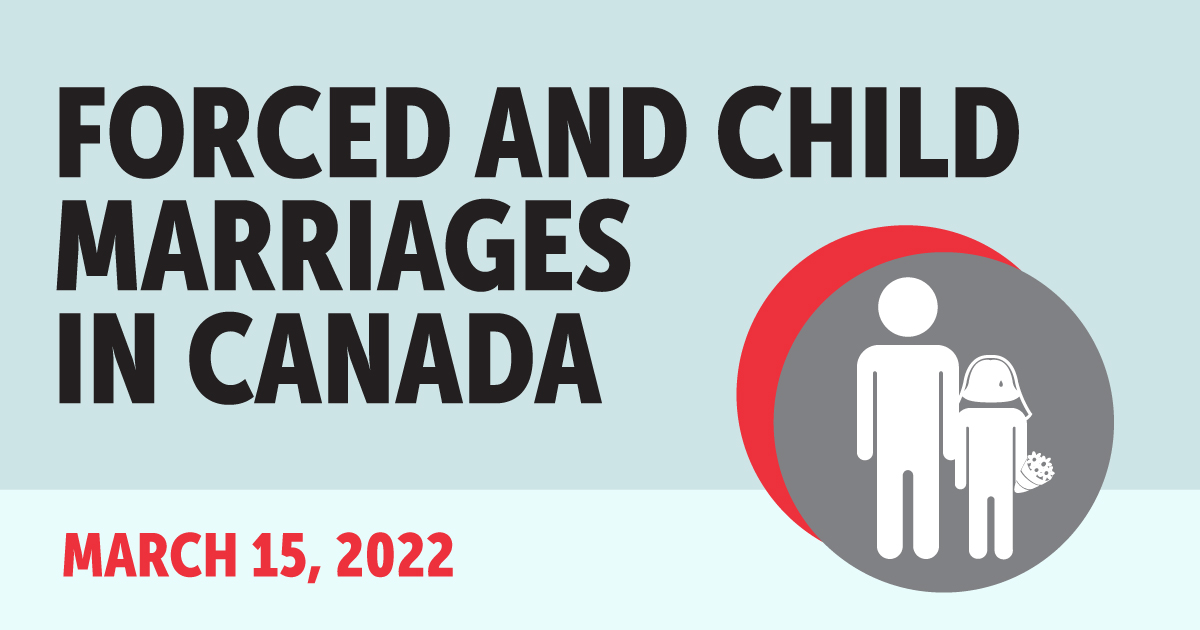Key Points:
- The One Chance Rule - You may only have one chance to meet, talk, or consult with a person facing a forced marriage, so:
• Make efficient use of the time
• Get as many details as possible
• Provide as much information and support as you can
- Forced Marriage Can Happen to Anyone - Although the majority of victims are young women and girls, forced marriage can happen
to anyone, of any age, of any religion, race or ethnic background, of any gender, to disabled individuals, to those who are highly
educated, and to those of all socioeconomic levels.
- Do Not Attempt to Be a Mediator - Do not attempt to mediate between individuals in a situation involving forced marriage. This
may put the victim in greater danger.
Additional Resources:
PowerPoint Presentation: Download Here
The I Do! Project
Raises awareness about Forced Marriage in Canada. They train service providers, professionals and community groups to recognize and intervene safely and effectively in cases of forced marriage, both in Canada and abroad. They empower survivors and those who have been at risk of forced marriage through their Survivors’ Group, the Survivors’ Network, and through programming created specifically for them.
www.idoproject.ca
Email: stopforcedmarriage@gmail.com
Contact Number: 647-457-6914
Government of Canada – Global Affairs
In addition to providing information about forced marriages and how Global Affairs can help someone facing a forced marriage, there is a list of further resources / supports across Canada on this webpage.
https://travel.gc.ca/assistance/emergency-info/forced-marriage
The South Asian Legal Clinic of Ontario (SALCO)
Provides free legal assistance for anyone dealing with a forced marriage.
Contact Number: 416-487-6371
Fax: 416-487-6456
Barbra Schlifer Clinic
Offers legal, counselling and interpretation services to marginalized and racialized populations of women who have survived violence and are survivors or at risk of a forced marriage.
Contact Number: 416-323-9149
Since forced marriage has been recognized as a form of human trafficking, victims of forced marriage have access to housing and resources available to victims of trafficking.
Housing
The Salvation Army’s Illuminate: Our programs are offered free of cost, available to Survivors across Canada in person, online, digitally, and by phone/text. With the exception of Deborah’s Gate, all our direct services are offered to Survivors of all genders, orientations, and circumstances.
- Service agencies or Survivors can call us directly at 604-347-9500, or toll free at 1-855-332-4283, or email us
at referrals@illuminateht.com. - Deborah’s Gate Live In Safe House supports Survivors who;
- Self identify as female
- Age 16 and up
- A Survivor of domestic or international exploitation/trafficking for the purposes of sex, labour, or organs
- Fleeing a perpetrator or unknown threat, as the program is high security and designed for safety first
- Detoxed 3-7 days from substances. We are willing to support you to access care so you can enter our program ready to
engage.
We accept Survivors with complex challenges or barriers ranging from cognitive and physical disability, complex trauma, correctional requirements, without legal status in Canada, tape off medications and prescribed nabilone, and registered service animals, in partnership with community agencies. Note the Deborah’s Gate program is unable to accept children, males, or pets at this time.
Covenant House - Provides longer term housing for victims of trafficking
Contact Number: 416-598-4898
Crisis Services
Victim Services - Provides crisis services for victims of trafficking 24/7 and 7 days a week. To find Victim Services near you, use the following webpage: https://www.justice.gc.ca/eng/cj-jp/victims-victimes/vsd-rsv/index.html
Canadian Human Trafficking Hotline – 1–833–900-1010 - The Canadian Human Trafficking Hotline is a confidential, multilingual service, operating 24/7 to connect victims and survivors with social services, law enforcement, and emergency services, as well as receive tips from the public.
The hotline uses a victim-centered approach when connecting human trafficking victims and survivors with local emergency, transition, and/or long-term supports and services across the country, as well as connecting callers to law enforcement where appropriate.







